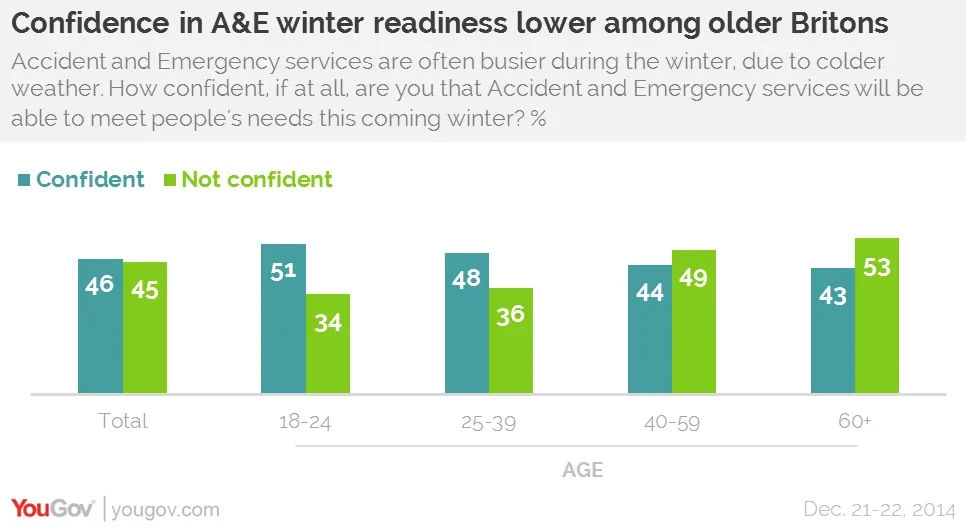Nearly half the public lacks confidence in the ability of A&E services to meet high demand in the winter months, and over-60s are especially sceptical
Staff in Britain’s Accident and Emergency departments reportedly saw one of the busiest days of the year this week following a long Christmas weekend and the arrival of sub-zero temperatures in some areas. The holiday surge comes at a time when the NHS is already struggling with record wait times and, a new YouGov poll suggests, middling public confidence in their ability to cope with the winter demand.
In total, 45% of British adults say they lack confidence that A&E services will be able to meet people’s needs this winter. This is essentially the same as the share of the public who are confident (46%).
Doubts are greater among older people, a group especially vulnerable to the cold weather. 53% of over-60s lack confidence in the winter preparedness of Britain’s A&E departments, compared to just over a third of under-40s.

Confidence is actually highest in one region of Britain where the temperatures will likely be lowest – Scotland. 63% of Scottish people believe A&E departments can cope with the winter period, compared to only 41% in the Midlands and Wales and 44% in the North of England.
Most people cite higher demand for services as the main reason for longer wait times. Yet people are twice as likely to say the extra demand comes primarily from those who “don’t really need” to use the A&E (34%) rather than those who do (17%). Too-low NHS spending (15%) comes next, followed by people not being able to get appointments with their GPs (12%), poor organisation within the NHS (11%) and too much private sector involvement in the heath service (4%).
Before the Christmas holiday A&E departments in England experienced their 'worst week' for patient wait times since records begain in 2010. The government target is to see 95% of A&E patients within four hours, but during the seven days up to December 14 only six of 140 units in England achieved this. England is the only part of the UK that collects data on wait times on a weekly basis, but Wales and Northern Ireland are also believed to be faring badly.
PA image






